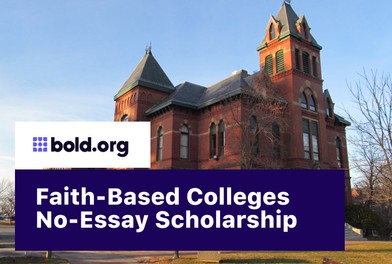I remember sitting at my kitchen table, a mountain of college brochures spread out before me, and a knot in my stomach. The tuition figures felt like a foreign language, a language I couldn’t afford to learn. My parents, bless their hearts, were doing their best, but the sheer cost of higher education felt like an insurmountable wall. I was a good student, involved in my community, and had big dreams, but those dreams seemed to be shrinking under the weight of financial worry.
Then, one Sunday morning, during coffee hour after service, Mrs. Henderson, a sweet, elderly woman who always brought the best cookies, leaned over and whispered, "Have you looked into the church scholarship, dear?"
I must have looked bewildered. "Church scholarship?" I asked, picturing something small, perhaps just a few dollars for books. She just smiled, her eyes twinkling, and said, "Talk to Pastor Michael. You might be surprised."
That conversation was a turning point. It was the moment I realized that help for my college dream might be waiting in the most unexpected, and incredibly supportive, place: my faith community. And let me tell you, it was more than just a few dollars.
What Are Church-Based Scholarships, Anyway? My First Discovery
Before that day, the idea of getting money for college from a church hadn’t even crossed my mind. Most of what I’d heard about scholarships was tied to academic prowess, athletic skill, or specific fields of study. But Mrs. Henderson’s simple question opened up a whole new world.
Think of them as a helping hand from your faith community. Churches, deeply rooted in community and service, often see investing in their young people’s education as a natural extension of their mission. They want to nurture the next generation, encourage their growth, and help them contribute positively to the world, often through the values they’ve learned within the church walls.
These aren’t just for future pastors or missionaries, either! While some scholarships might be geared towards those pursuing religious studies, many are open to any field of study, as long as you meet the church’s criteria, which usually includes being an active member of their congregation.
My First Steps: Where Do You Even Look?
My first thought was, "Wait, my church gives scholarships?" I felt a bit silly for not knowing. But it turns out, many churches, denominations, and faith-based organizations do, often without much fanfare. They’re not always advertised on billboards; you sometimes have to dig a little, and most importantly, ask.
Here’s how I started my search, and what I recommend for anyone else:
- Start with Your Own Church: This is the most obvious, and often the best, place to begin. Talk to your pastor, youth leader, or any administrative staff. They’ll know if your specific church offers anything, or if they have connections to denominational scholarships. Many churches have a small education fund or a committee dedicated to supporting their youth.
- Explore Your Denomination: Don’t stop there! Many denominations (like Methodist, Baptist, Presbyterian, Catholic, etc.) have larger scholarship programs available to members across their network of churches. A quick search online for "[Your Denomination] scholarships" or "faith-based college grants" can yield a lot of results.
- Online Directories (with a religious filter): Websites dedicated to scholarships often allow you to filter by affiliation. Look for "religious," "faith-based," or "church-affiliated" options. Be specific in your searches, for example, "Christian scholarships for college" or "Catholic financial aid."
- Community and Local Organizations: Sometimes, local interfaith councils or community foundations might offer scholarships that prioritize applicants with strong ties to a faith community, even if they aren’t directly run by a single church.
I wasn’t shy about asking around. I talked to my Sunday school teachers, older members of the congregation, and anyone who seemed to have been around the church for a while. You’d be surprised how much valuable information you can gather just by having a conversation.
The Application Journey: More Than Just Grades
This is where it gets interesting, because church scholarships aren’t just about your GPA. While academic effort is usually appreciated, they often look at a more complete picture of who you are, especially how you live out your faith and contribute to your community.
Here’s what my application process typically involved, and what you can expect:
- Community Involvement and Service: This was a big one. Churches want to see that you’re an active part of the community, not just a name on a roster. I had volunteered in our youth group, helped with Sunday school, participated in food drives, and sang in the choir. Documenting these activities, even the small ones, showed my commitment. They’re looking for signs that you embody the spirit of service.
- Your Story (The Essay): This was my favorite part. Unlike some scholarship essays that demand a scientific explanation or a critique of literature, church scholarship essays often invite you to tell your story. How has your faith shaped you? What challenges have you overcome? How do you plan to use your education to make a positive difference in the world? This is your chance to share your heart and your journey. I wrote about how my church community had been a constant source of strength and guidance during tough times.
- Recommendations: A glowing letter from my pastor or youth leader was often required. These letters weren’t just about my academic performance; they spoke to my character, my dedication, and my involvement in church life. If you’re active in your church, these individuals will know you well and can speak genuinely about your qualities.
- Academic Information: Yes, your grades and transcripts are usually required, but often, the emphasis isn’t solely on being a straight-A student. They often understand that life isn’t always a straight A, but they want to see effort, dedication, and a commitment to learning.
- Interviews: For some, there might be a short interview with a scholarship committee. This is usually a friendly conversation designed to get to know you better and understand your aspirations.
My "Aha!" Moment: The Relief of Support
The weeks that followed after submitting my applications felt like forever. I had applied to a few different church-based scholarships – one from my home church, and another from my denomination. I tried not to get my hopes up too much, reminding myself that any little bit would help.
Then, the letter arrived. It wasn’t a full ride, no, but it was a substantial amount from my local church’s education fund, enough to significantly lighten the burden of tuition and textbooks. I remember tears stinging my eyes as I read it. It wasn’t just the money; it was the feeling of being seen, believed in, and supported by my community. It felt like a warm hug, a clear sign that they were invested in my future.
A few weeks later, another letter came, this time from my denomination, offering an additional grant. Suddenly, that insurmountable wall of college costs had a significant chunk removed from it. My dream of going to college, which had felt so fragile, now felt within reach.
Beyond the Money: The Deeper Blessings
This scholarship wasn’t just a financial transaction; it was a connection. Throughout my college years, I felt a continued sense of belonging and support from my church. I’d receive encouraging emails, and when I came home for breaks, there was always someone asking how I was doing, how my studies were going.
It taught me that faith communities aren’t just places of worship; they are networks of support, mentorship, and genuine care. This experience also deepened my own sense of gratitude and my desire to give back. It showed me the power of community investing in its youth, and it inspired me to one day do the same for others.
Your Turn: Tips for Finding Your Own Church Scholarship
If you’re reading this and feeling that familiar knot of financial worry about college, please don’t overlook the incredible generosity that might be waiting for you within a faith-based organization. Here are my top tips for you:
- Be Proactive and Ask: Don’t wait for information to come to you. Go to your pastor, youth leader, or church administrator and simply ask, "Are there any scholarships available through our church or denomination for college students?"
- Connect Deeply: Get involved in your church community. Volunteer, join groups, attend services regularly. The more people know you and your commitment, the easier it will be for them to advocate for you and write strong recommendation letters.
- Tell Your Story Authentically: When it comes to essays, share your genuine experiences and how your faith has shaped your aspirations. Let your personality and passion shine through.
- Document Your Service: Keep a record of all your volunteer work, community involvement, and leadership roles within the church and beyond. This will be invaluable for your applications.
- Don’t Give Up: The search for scholarships can feel like a lot of work, but every little bit helps. Even a small scholarship can significantly reduce your financial stress.
- Read the Criteria Carefully: Each scholarship will have specific requirements. Make sure you understand them and tailor your application accordingly.
Church-based scholarships are a beautiful testament to faith in action, a tangible way for communities to invest in the future of their young people. They offer not just financial relief, but also a profound sense of encouragement and belonging.
So, if you’re feeling overwhelmed by college costs, don’t overlook the power and generosity that might be waiting for you right within your own faith community. It might just be the lightbulb moment you need to make your college dream a reality, just like it was for me.



